They arrived at the Willow Creek Shelter in a cardboard box, two tiny, matted bundles of brown and white fur, no older than eight weeks. We named them Apollo and Artemis. Apollo, the male, was the bolder one—a little tank who was first to try the kibble, first to climb out of the whelping box, and the designated instigator of every wrestling match. Artemis, his sister, was his quiet anchor. She was cautious, sensitive, and preferred to observe the chaos Apollo created before tentatively joining in.
They were inseparable. Whether curled up in a single, furry ball for naptime, or tearing across the common play area, they always moved as one. If a volunteer picked up Apollo, Artemis would whine until she was scooped up too. Their bond was more than sibling familiarity; it was a fundamental security blanket for two puppies suddenly navigating a strange, loud world without their mother.
We knew, as shelter workers, that separating them was inevitable. It’s rare for two dogs to be adopted together, especially littermates who need to develop individual confidence. But we also knew the parting would be hard. We just didn’t realize how devastating it would be for the one left behind.

The day came swiftly, as it often does for cute, young puppies. A kind, quiet family walked into the kennels, not looking for a specific breed, just a small, loving member to add to their home. They immediately gravitated toward the playful chaos that was Apollo. He was a natural showman, all tail wags and puppy kisses. Artemis, true to form, stayed a few paces back, observing the transaction with wide, solemn eyes.
The family was clearly smitten. Within an hour, the paperwork was signed, the leash was clipped, and Apollo was heading toward the door.
This is the moment our hearts always clench. As Apollo bounced ahead, excited by the scent of fresh air and a new adventure, he paused. He looked back at the glass partition where Artemis was standing. For a split second, they locked eyes—Apollo’s bright with anticipation, Artemis’s filled with a growing, cold dread.
Then, Apollo was gone. The door swung shut, and his enthusiastic yelps faded.
Artemis didn’t make a sound. She didn’t scratch at the door or bark a goodbye. She simply stood where Apollo had left her, statue-still.

The immediate aftermath was quiet, almost eerily so. Artemis refused the lunch we offered her. She didn’t seek out the other playful puppies in the common room. She didn’t even look up when the treat cart rolled by—a phenomenon previously unheard of.
Her new world was defined by a massive, sudden absence.
She spent the afternoon circling their shared kennel, checking every corner of the large dog bed, as if she believed Apollo’s departure was a cruel, temporary joke and he would soon pop out from behind a blanket. When evening fell, the true pain began to manifest.
Artemis went to the dog bed. For months, they had slept pressed together, Apollo’s body a warm, solid wall against her side. She now faced a vast, empty expanse of cushioning. She nudged her head under the blanket where Apollo’s favorite resting spot had been, and then she let out the most heart-wrenching sound I had ever heard from a puppy.
It wasn’t a bark or a howl of panic. It was a soft, guttural, low whine—a sound of deep, profound loss. She circled the empty space again, and then, she did something truly heartbreaking: she began to cry.

Artemis laid her head down on the spot where Apollo’s neck used to rest. Her tiny body began to tremble. Her whimpers were punctuated by short, shuddering breaths, and genuine, wet tears rolled from her eyes, soaking the blanket.
Watching through the kennel window, the night staff and I were paralyzed by the raw display of emotion. We couldn’t comfort her; the separation was not a fear we could chase away, but a reality she had to process. It was the purest form of canine grief: the agonizing realization that the one creature who understood her most deeply was no longer within reach.
She cried herself into a fitful, shallow sleep. Every hour, she would wake with a start, sniff the empty space, let out a mournful little groan, and then drift back to sleep, her tiny frame curled into the tightest, most protective ball she could manage.
The next morning, we found her in the exact same spot, her face still damp, her usually bright eyes dull with exhaustion and sorrow.

The shelter staff immediately stepped up. We gave her a special comfort toy—a stuffed animal that was almost as large as Apollo had been—to give her a physical presence to snuggle into. We placed her on a special rotation, ensuring she had continuous, one-on-one time with a human volunteer who could offer a lap and a soothing voice, providing a temporary replacement for the companionship she lost.
Artemis is doing better now. The immediate, acute pain has passed. She is learning to interact with the other dogs, though she does so tentatively, always sniffing their presence first, measuring if they are worth her emotional investment. Her heart is still fragile, still missing the familiar warmth of her brother.

But she is resilient. She is gentle. She needs a human who understands that her initial caution is not fear, but wisdom—the wisdom of a puppy who knows what it feels like to lose everything. She needs a quiet home, a patient owner, and a comfortable lap to remind her that while one soul has left, another has arrived, ready to commit to her forever.
Artemis is waiting for the one person who will see past the heartache in her eyes and recognize the enormous, untapped well of loyalty and deep-seated love she has ready to give. She deserves to stop crying for what she lost and start celebrating what she has found.



